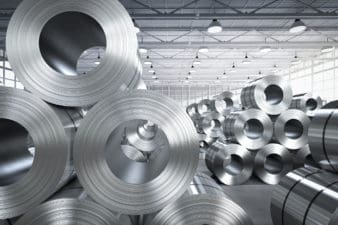Potash Corporation of Saskatchewan Inc. (TSX:POT)(NYSE:POT) and Teck Resources Ltd. (TSX:TCK.B)(NYSE:TCK) have endured some tough times in recent years.
Let’s take a look at the two commodity giants to see if one deserves to be in your portfolio.
Potash Corp.
Potash Corp. is struggling with low fertilizer prices, heavy competition, and difficult conditions in key markets.
Potash prices are trading at multi-year lows as the world’s largest producers battle it out for market share. The war began in 2013 when miners in Belarus and Russia ended a cozy marketing relationship. So far the two companies have refused to kiss and make up, and there is little evidence the cartel will re-form in the near term.
The spot price for potash prices initially fell from US$400 per tonne to about US$300 per tonne when the Russia-Belarus split was announced. Today potash is trading for close to US$240 per tonne.
Global potash shipments are expected to be 59-61 million tonnes in 2016, roughly in line with the previous two years, but weak crop prices in the U.S. and volatile currencies in countries like Brazil have kept some buyers on the sidelines.
Potash Corp. has taken the necessary steps to ride out the rout. The company reduced the dividend earlier this year, closed plants in New Brunswick, and lowered output at facilities in Saskatchewan. Management believes the market will start to improve in the back half of 2016.
The stock pays a 5.8% yield, but analysts are concerned the distribution could be cut again if the market remains under pressure.
Teck
Teck was pretty much left for dead in January, but a surge in oil prices and bets on a bottom for coal, copper, and zinc have sparked a strong rally in the stock.
In fact, Teck has surged from below $4 per share to $15 in just five months.
Teck isn’t an oil producer, but is has a 20% stake in the Fort Hills oil sand project, which is scheduled to begin production at the end of 2017. Teck has ploughed billions into the facility, and investors figured the investment would be a total write-off when WTI oil dropped below US$30 per barrel in January.
Oil has since recovered to a recent high of US$50 per barrel, and Fort Hills is once again looking like it could be a positive source of future cash flow.
Coal, copper, and zinc have been in a five-year bear market, but the cycle might have bottomed out. Coal is trading higher than the Q2 contract settlement price, copper has stabilized, and zinc is up 30% in the past six months.
Teck is carrying almost $9 billion in long-term debt, so the balance sheet remains a concern, especially if commodity prices take another leg to the downside.
Is one a better bet?
Both stocks are low-cost producers in their respective industries and should outperform over the long term. If you have a contrarian investing style, I think either name is attractive pick.
Potash is probably the safer bet, and the dividend could survive if fertilizer prices begin to recover at the end of this year. If you are comfortable taking on some added risk, I think Teck offers more upside potential in the current environment.




